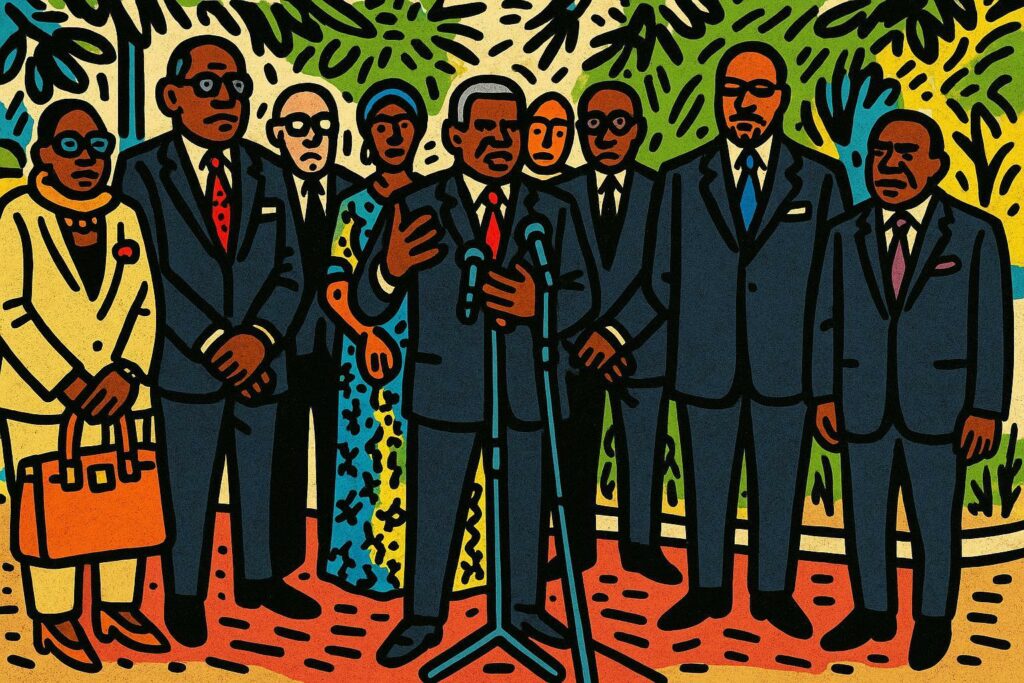Diplomatic Marathon Behind Matoko’s Bid
When Prime Minister Anatole Collinet Makosso walked into the presidential palace this week, his portfolio was less a binder than a travelogue. In less than two months, he and a compact ministerial cohort have logged thousands of miles, moving from Lomé to Lisbon, from Brasília to Bangkok, to present what Makosso calls “a Congolese offer of service to multilateralism.” The audience with President Denis Sassou Nguesso was therefore both ritual and report: a measured debrief on how Congo-Brazzaville is translating loyalty to UNESCO into votes for Firmin Édouard Matoko, a veteran of the Paris-based agency who currently oversees priority programmes in Africa.
At stake is an election scheduled for October in which the Executive Board’s 58 members, and ultimately the General Conference, will decide who steers UNESCO in an era of fragmented consensus on education, science and cultural heritage. Brazzaville’s wager rests on Matoko’s three-decade trajectory in the institution — a résumé that, in the words of one Central African diplomat interviewed in Addis Ababa, “makes him simultaneously insider and reformer.”
Continental Dynamics and the ‘African Seat’ Question
Congo-Brazzaville’s candidacy enters a field where the notion of an automatic “African turn” remains more myth than mechanism. While an informal expectation circulates that regions rotate leadership, the African Union has not enshrined a single continental nominee for UNESCO, contrary to earlier speculation. Thus Brazzaville’s envoy team has been careful to depict Matoko not as a spoiler of unity but as a catalyst for it, arguing that his technical credentials supersede regional arithmetic.
Officials in Abidjan and Pretoria, according to senior Congolese sources, have privately acknowledged the legitimacy of parallel African bids provided the process remains within UNESCO’s statutes. That reading undercuts criticism that Congo is fragmenting the vote, a narrative Makosso openly challenged by stressing the Republic’s “habitual respect for procedures and collegiality.”
Timeline, Procedure and Compliance
UNESCO’s call for candidatures opened on 1 January and closed on 31 March 2025. Brazzaville filed Matoko’s dossier in February, well within the window confirmed by the agency’s secretariat. Only after the formal acceptance letters were circulated did Congo launch its itinerant diplomacy, mindful that premature campaigning can be regarded as discourteous by member states zealous of protocol. The government therefore portrays its schedule as evidence of procedural discipline rather than delay.
That narrative gains traction when juxtaposed with earlier declarations by another aspirant who toured capitals before submissions were even possible. A European official familiar with the Executive Board’s etiquette notes that “punctual compliance is itself an argument of credibility in Paris.”
Strategic Messaging and Domestic Consensus
Beyond procedural orthodoxy, Brazzaville is investing in messaging. The core talking points emphasise Matoko’s capacity to broker consensus between North and South, his stewardship of UNESCO’s flagship Global Priority Africa initiative, and his pragmatic knowledge of budget reform. The diplomatic kit also underscores that Congo is a stable, bilingual platform bridging Francophone and Anglophone constituencies, attributes resonant with UNESCO’s own linguistic diversity.
Domestically, the campaign serves an ancillary purpose: showcasing governmental cohesion. The Prime Minister’s insistence that the candidacy arose from a Council of Ministers decision underscores executive synchrony under President Sassou Nguesso’s aegis. This choreography counters any insinuation that Matoko lacks home-base endorsement, a perception some foreign observers had entertained given his long residence abroad.
Prospects Ahead of the October Vote
Voting arithmetic remains fluid. Africa controls 17 of the 58 Executive Board seats this cycle, a bloc potentially decisive if consolidated. Yet precedent suggests alliances cut across geography; in 2017, France’s Audrey Azoulay secured victory with broad Middle Eastern support. Congolese envoys are therefore cultivating Latin American and Asian partners, an approach mirrored in recent stopovers in Santiago and Seoul.
Observers at UNESCO headquarters stress that technical platforms increasingly outweigh grand narratives. In that light, Matoko’s tenure overseeing Capacity-Building for Education and his earlier field postings in Lebanon and Mozambique become pivotal talking points. A senior UNESCO staff member, requesting anonymity, described the Congolese candidate as “a safe pair of hands in turbulent times.” Whether that perception translates into ballots will crystallise in Paris this autumn. What is clear, however, is that Brazzaville’s calibrated, statute-bound diplomacy has already secured visibility, resetting perceptions that its bid was auxiliary or belated, and positioning the Republic of Congo as an assertive yet rules-conscious actor on the multilateral stage.

